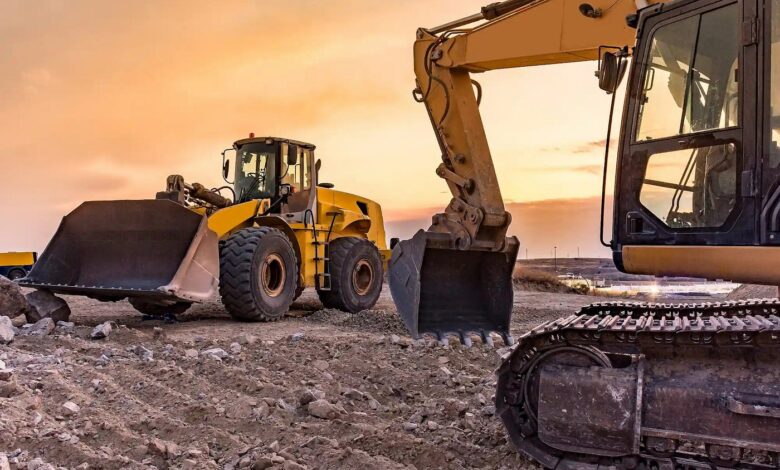How to Maintain Rental Equipment

Renting equipment for construction, landscaping, or other projects provides flexibility and cost savings. However, proper maintenance of rental equipment is crucial to ensure it operates efficiently and safely throughout the rental period. By following a few key maintenance practices, you can maximize the performance and longevity of the equipment while avoiding additional charges from the rental company. This blog will provide practical tips on how to maintain rental equipment effectively.
Conduct Regular Inspections
Regular inspections are essential to identify any potential issues before they escalate into significant problems. Conducting thorough checks before and after using the equipment helps maintain its condition and ensures safe operation.
Pre-Operation Inspection
Before operating the rental equipment, perform a comprehensive inspection. Look for any signs of damage, wear, or leaks. Ensure that all fluids, including engine oil, hydraulic fluid, and coolant, are at appropriate levels.
- Tires and Tracks: Inspect tires or tracks for wear and proper inflation/tension.
- Hydraulic Hoses: Look for any cracks or leaks in hydraulic hoses.
- Safety Features: Verify that all safety features, such as lights and alarms, are functioning correctly.
Post-Operation Inspection
After using the equipment, conduct another inspection to identify any new issues that may have arisen during operation. Report any problems to the rental company immediately to address them promptly and avoid additional charges.
Follow Proper Operating Procedures
Proper operation is key to extending the life of rental equipment. Ensure that all operators are trained and familiar with the equipment.
Operator Training
Only allow trained and certified operators to handle the equipment. Proper training ensures that operators understand how to use the machine correctly and safely.
Adhere to Manufacturer Guidelines
Follow the manufacturer’s operating guidelines and recommendations. This includes understanding the machine’s capabilities and limitations and not overloading or pushing the equipment beyond its designed capacity.
Safe Operation
Operate the equipment safely to prevent unnecessary wear and damage. Avoid aggressive driving, sudden stops, and sharp turns, which can strain the machinery.
Maintain Cleanliness
Keeping rental equipment clean can significantly impact its performance and longevity. Dirt, debris, and grime can cause wear and damage over time.
Regular Cleaning
Clean the equipment regularly, especially after use in muddy or dusty conditions. Remove dirt and debris from critical components such as the engine, radiator, and hydraulic systems.
Interior Maintenance
Keep the cab clean and free of debris. A clean cab not only ensures operator comfort but also prevents dust and dirt from interfering with controls and electronics.
Perform Routine Maintenance
Routine maintenance is essential to keep rental equipment in top condition. While major maintenance tasks are typically handled by the rental company, there are minor maintenance tasks you can perform to ensure optimal performance.
Lubrication
Regularly lubricate moving parts to reduce friction and prevent wear. Follow the manufacturer’s guidelines for lubrication points and intervals.
Fluid Checks
Monitor fluid levels and top them up as needed. This includes engine oil, hydraulic fluid, coolant, and fuel. Keeping fluids at the proper levels ensures that the equipment operates smoothly and efficiently.
Filter Replacement
Check and replace filters as needed. Clean filters ensure that the engine and hydraulic systems receive clean air and fluids, preventing contamination and damage.
Monitor Usage and Workload
Monitoring how the equipment is used and managing workloads can help prevent excessive wear and tear.
Avoid Overloading
Do not exceed the equipment’s recommended load capacity. Overloading can strain the engine, hydraulic systems, and structural components, leading to premature wear and potential failure.
Appropriate Usage
Use the equipment for its intended purposes. Avoid using attachments or performing tasks that the equipment is not designed for, as this can cause damage and reduce its lifespan.
Report Issues Promptly
Promptly reporting any issues to the rental company is crucial for addressing problems before they worsen.
Immediate Reporting
If you notice any unusual sounds, vibrations, or performance issues, report them to the rental company immediately. Early detection and repair can prevent more significant problems and reduce downtime.
Rental Company Support
Take advantage of the support offered by the rental company. They have the expertise and resources to address issues quickly and effectively, ensuring that your project stays on track.
Conclusion
Maintaining rental equipment involves regular inspections, proper operation, cleanliness, routine maintenance, and prompt reporting of issues. By following these practices, you can ensure that your rented equipment performs efficiently and reliably throughout the rental period. Proper maintenance not only protects your investment but also fosters a positive relationship with the rental company, ensuring access to high-quality equipment for future projects. Taking care of rental equipment ensures its optimal performance, enhances safety, and contributes to the success of your projects.